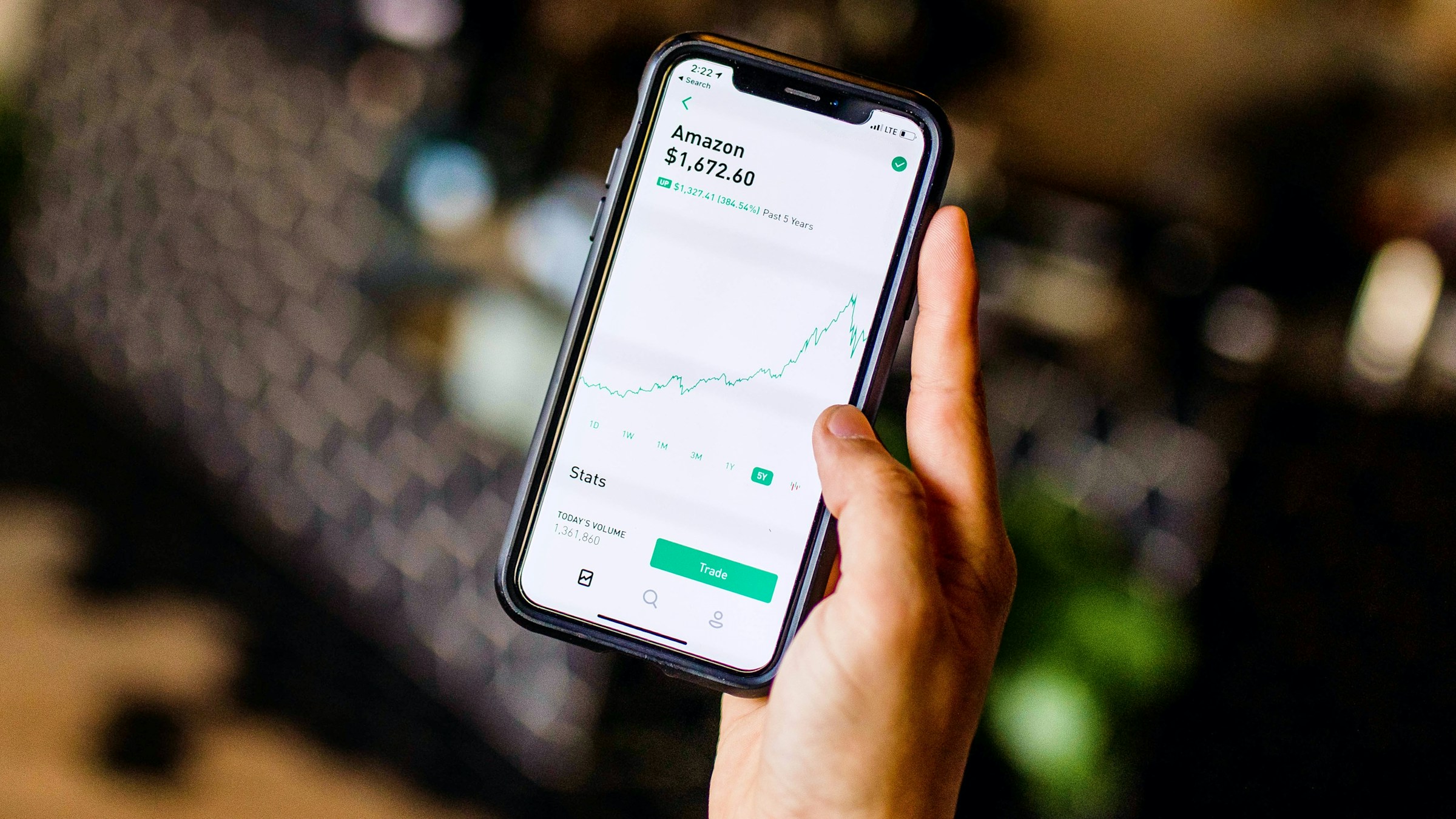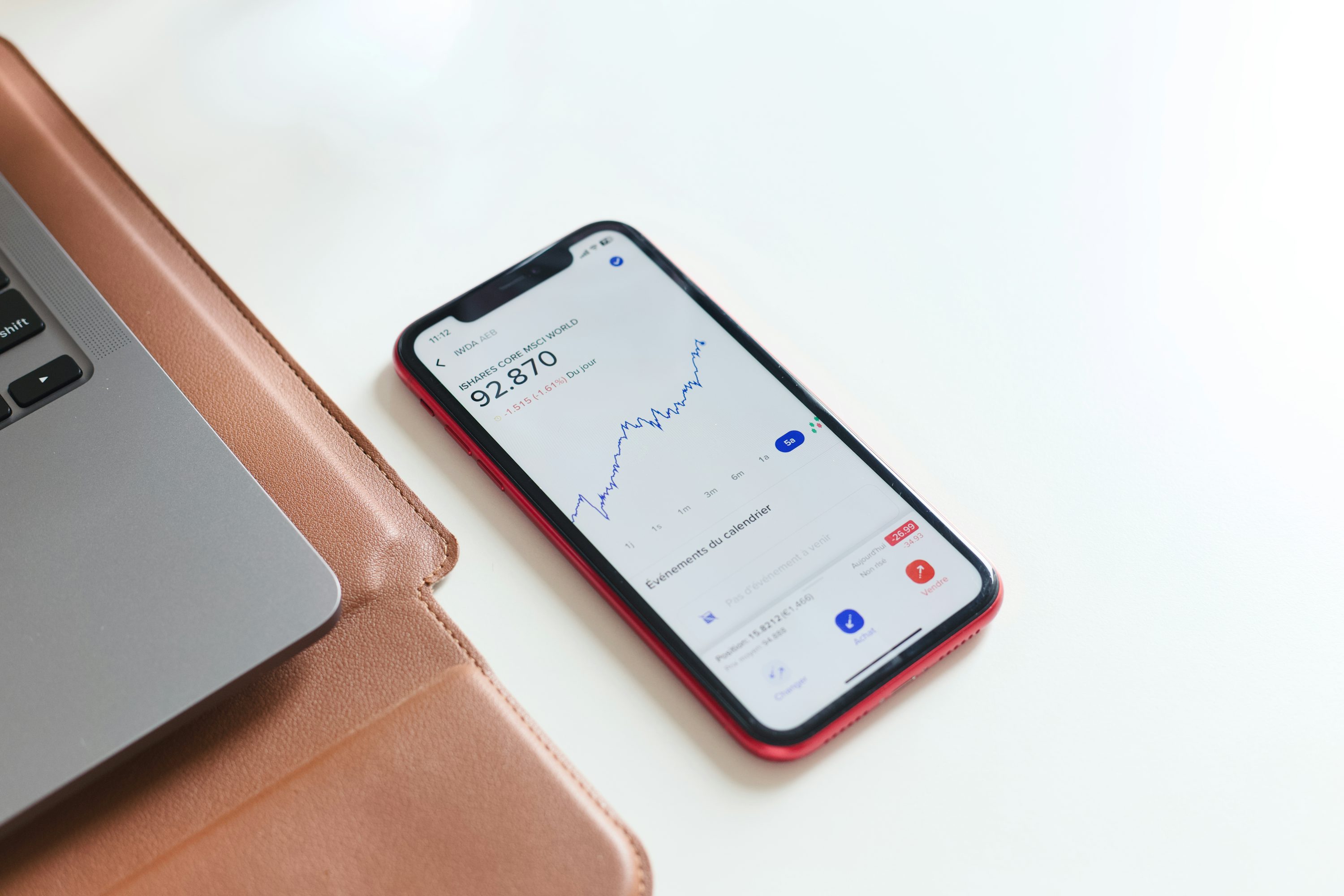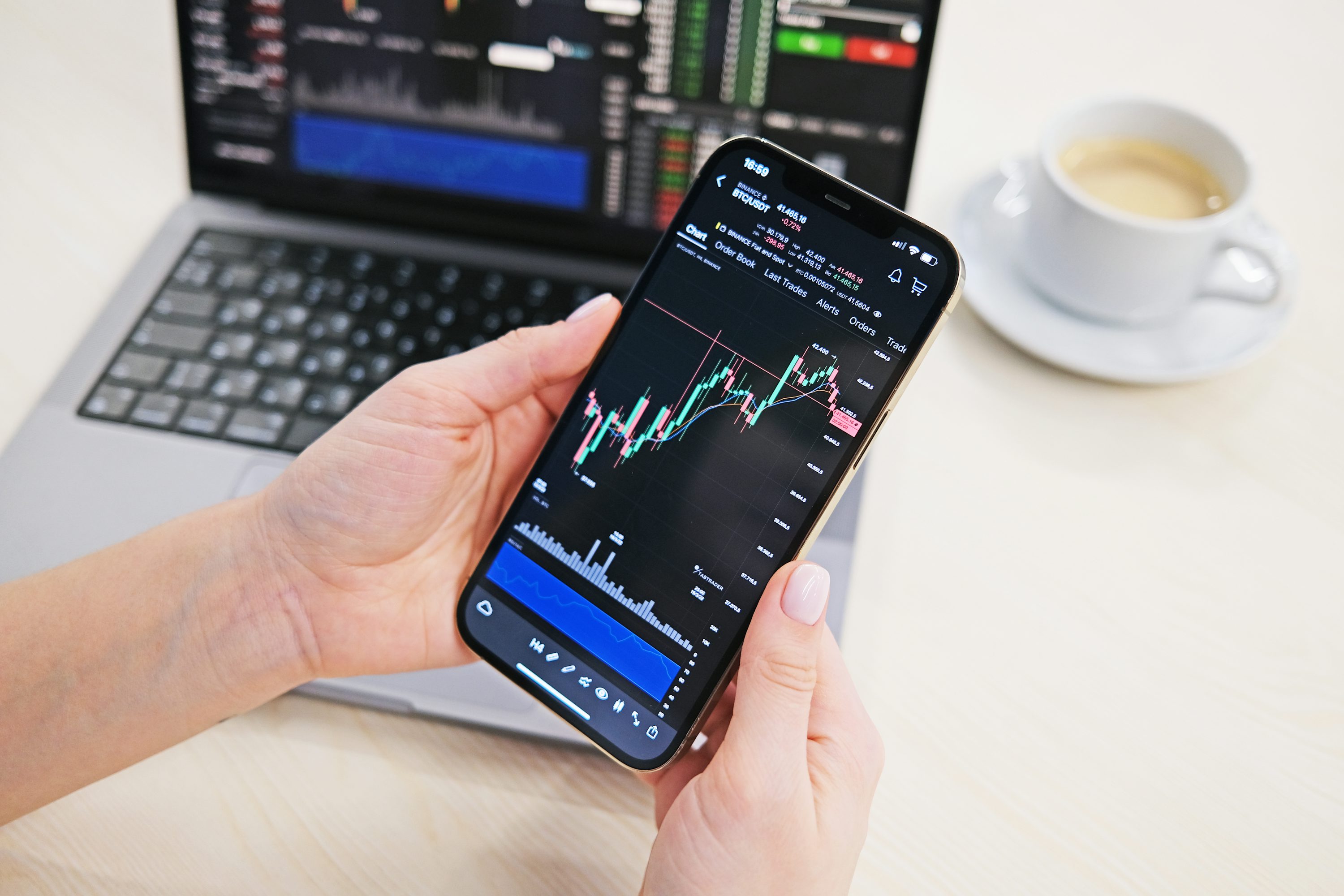Detailed Comparison of Futures vs Stocks Trading
Learn the key differences between futures vs stocks trading, including risk, leverage, and market access, to choose the right strategy for you.

Navigating the intricacies of Smart Money Trading means understanding the differences between futures and stocks. Maybe you’ve been there, trying to figure out where to invest your time and money. The decision can feel overwhelming, especially if you’re looking to maximize your capital and trading potential. The strategies and goals for these two types of trading can vary significantly, depending on your objectives. This guide will break down the key differences between futures and stocks, helping you make informed decisions to reach your financial goals.
Aqua Funded's funded trading program is a great resource to help you achieve your objectives. It provides the tools and resources you need to succeed.
Difference Between Futures and Stocks

Ownership vs. Contractual Agreement: Understanding the Basics
When you buy stocks, you’re buying a piece of the company. This ownership can grant you dividends and voting rights, all of which hinge on the company’s success. You can hold onto this piece as long as you like. In contrast, futures are contracts that speculate on the price of an asset, like oil or gold, without actually owning it. These contracts obligate you to buy or sell at a specific price on a set date.
Futures Expiration Dates: Tick-Tock Goes the Clock
Stocks offer the luxury of time; they don’t expire. Hold them as long as the company stays afloat. Futures, however, come with a built-in countdown. They have specific expiration dates, often monthly or quarterly. Most traders close or roll over their positions before these dates to avoid settling the contract.
Leverage and Margin: Risk and Reward
In stock trading, your exposure is manageable. You usually need to cover at least 50% of the trade’s value upfront. Futures, though, are a different beast. They require only a small percentage as margin, meaning you can control a prominent position with minimal capital. This offers the potential for significant gains and losses.
Trading Hours: The Clock Never Stops
Stock trading sticks to a schedule, typically from 9:30 AM to 4:00 PM ET in the U.S. Futures markets, however, are nearly always open, five days a week. This provides traders with more opportunities to respond to global events or economic data released outside of typical stock market hours.
Accessing Different Markets: A World of Choices
Stocks are all about companies. Your returns depend on company performance and growth. Futures, however, allow you to speculate on a wide range of assets, including commodities, currencies, and stock indices. You’re not investing in companies here; you’re speculating on global market movements.
Regulation and Exchanges: Different Rulebooks
Stocks fall under the watchful eye of the SEC and trade on equity exchanges like the NYSE or NASDAQ. Futures, meanwhile, are overseen by the CFTC and trade on commodity exchanges like the CME Group. They play by a completely different set of rules.
Risk and Volatility: The Stakes Are High
Stocks can be volatile, but your risk is typically tied to the amount you invest. Futures, however, are inherently riskier due to their leverage. Even small price changes can result in significant gains or losses, and margin calls can add pressure if the market moves against you.
Tax Considerations: Keep Uncle Sam Happy
Stock trading has varied tax implications based on how long you hold an asset. Futures trading, on the other hand, is taxed under Section 1256 in the U.S., offering a potentially more favorable tax treatment for active traders.
Related Reading
- How Much Money Do You Need to Start Trading
- How Long Does It Take to Learn Trading
- What Challenges Do Traders Face?
- How to Multiply Your Money
- Why is Trading So Hard
- How to Swing Trade
- How to Start Trading With No Money
Benefits of Futures Over Stocks

Break Free from the Pattern Day Trader Rule
Say goodbye to the pattern day trader rule and minimum balance requirements. Stock traders need to maintain $25,000 to actively day trade. Futures trading offers more freedom. No rules limit your account balance or the frequency of your trades. Futures rely on margin, a good-faith deposit, to control contracts. This means more leverage and flexibility.
Mastering Leverage for Bigger Moves
Stock trading offers limited leverage, with 25% for day trading and 50% for overnight trading. Futures allow you to control a position with less than 5% of its value. This means a greater opportunity for bigger profits. However, remember that greater leverage also means greater risk. Always have a risk management plan in place when trading futures.
Short with Ease
Shorting stocks can be a hassle. Sometimes you can't find shares to borrow. Futures make it easy to go short. You can short any futures contract at any time. No more waiting or missing out on opportunities.
Diversify Like a Pro
Stocks can be limiting. Futures give you access to a wide range of markets and commodities. Trade major indices, such as the E-mini S&P, Nasdaq, and Dow Jones. Or explore markets like crude oil, gold, silver, and coffee. Futures offer greater diversification and more trading opportunities.
Trade Around the Clock
Futures trading never sleeps. While stocks and ETFs have limited trading hours, futures markets are open nearly 24 hours a day. This means you can react to overnight news and trade on your schedule. It's a global market with opportunities around the clock.
Enjoy Tax Perks
Futures trading offers a tax advantage. Stock profits from trades held less than a year are taxed at 100% short-term gains. Futures profits are taxed using a 60/40 rule: 60% as long-term and 40% as short-term gains. This can significantly benefit profitable traders. Consult your tax advisor for more details.
Transform your trading skills into a funded trading program with AquaFunded, where you can access up to $400K in capital and benefit from flexible trading conditions. Join 42,000 traders who’ve earned over $2.9 million in rewards, all backed by our 48-hour payment guarantee.
8 Expert Tips for Trading Futures

Aqua Funded: Trade Big Without Big Risks
Imagine trading with access to accounts up to $400,000 without putting your own money on the line. That's what AquaFunded offers. It provides flexible trading conditions with no time constraints, easy profit targets, and a potential profit split of up to 100%. Over 42,000 traders worldwide have already collected more than $2.9 million in rewards, all backed by a 48-hour payment guarantee. You can start trading immediately with instant funding options or prove your skills with customizable challenge paths.
Craft a Winning Trade Plan
Before jumping into a trade, create a detailed plan. Know your profit goals and, crucially, your exit strategy if things go south. This reduces the chance of making emotional decisions that could lead to holding losing positions too long or exiting profitable ones too soon. Utilize risk management tools, such as stop orders or bracket orders. For instance, if you buy December silver at $20 per ounce, set a stop at $18 and a profit exit at $25. This approach helps maintain focus and discipline.
Shield Your Positions Like a Pro
Commit to an exit strategy ahead of time to safeguard against significant market moves. Avoid relying on "mental stops," as they can be easily ignored. Instead, use stop orders or One-Triggers-Other (OTO) orders. OTO orders enable you to place a primary order and a stop simultaneously, freeing you from having to watch the initial order execute before placing the stop. However, be aware that stop orders aren't a guarantee of execution at the stop price due to the fast-moving nature of markets.
Focus on a Few Markets, But Don't Overdo It
Avoid spreading yourself too thin by following too many markets. Stick to a few that you can manage effectively. Futures trading requires a substantial investment of time and energy, so it's wise to focus on a select number of markets. But don’t limit yourself to just one market either. Diversification can have benefits, potentially offsetting losses with gains in other markets. For example, if gold prices drop but cocoa rallies, you might balance losses with gains.
Ease Into Trading: Start Slow
If you're new to futures trading, take it slow. Resist the urge to trade multiple contracts right out of the gate. Start with one or two contracts and develop your trading methodology without the added pressure of managing larger positions. If you've hit a rough patch, downsizing your contracts can be a smart move. Consider trading E-mini or Micro E-mini contracts, which are smaller and more manageable, allowing you to fine-tune your strategies with less risk.
Embrace Both Long and Short Opportunities
Opportunities exist in both rising and falling markets. Don’t just look for opportunities to go long; be open to shorting the market as well. For example, if you expect crude oil prices to drop, sell December crude oil futures to buy back at a lower price later. Futures allow you to sell first and buy later, offering flexibility in your trading strategies. Just remember, shorting carries the risk of unlimited loss, as there's no theoretical limit to how high a market can rise.
Learn From Margin Calls: A Tough Love Lesson
A margin call usually means you’ve held onto a losing trade for too long. Treat it as a wake-up call to reassess your position and consider exiting completely. Futures margin is the amount you must deposit to maintain a position, and it’s not a loan. If your account drops below the minimum requirement, you'll need to deposit more funds or risk liquidation at a loss. It's a harsh lesson, but one that can steer you away from emotional attachments to losing trades.
Patience Pays Off in Trading
Stay focused on your overall strategy rather than getting caught up in every market movement. Monitor your orders and positions, but avoid obsessing over each tiny fluctuation. Doing so can lead to unnecessary stress and potentially misleading decisions. Futures trading isn't for the faint of heart; it requires patience, discipline, and a steady hand.
Mistakes to Avoid When Trading Futures

Master the Basics Before Diving In
Many new traders make the mistake of thinking they can skip the basics and jump straight into advanced techniques. This mindset is akin to trying to drive a race car before you've even learned to steer. You can't become a successful trader without understanding the core principles. Key concepts, such as support and resistance, price action, and their impact on trading positions, are essential. Trying to bypass these fundamentals is a critical error that can lead to costly mistakes.
Develop a Clear Trading Strategy
Diving into the markets without a proven trading strategy is another grave error. Every trade should have a clear plan with defined entry points, stop losses, and profit targets. While there is no specific formula in trading, you should seek strategies that have demonstrated consistency across multiple trades. Know when it's worth entering or exiting a market. Successful traders operate within a structured framework, ensuring their trades meet specific criteria before execution. This approach isn't optional; it's a necessity for long-term success.
Don't Marry a Single Market
Focusing solely on one market can be detrimental. While specialization isn't inherently bad, it can lead to forcing trades that aren't there simply because you're itching to be active. This behavior often results from a misguided need to be busy. Instead, apply your strategy across different markets when opportunities arise elsewhere. A versatile strategy that works across markets and timeframes is invaluable. This way, when your favorite market is quiet, you can still find trades that align with your plan.
Resist the Urge to Chase the Market
When the market starts moving, it's tempting to jump in without thinking. But this is often a mistake. You risk getting caught in a move that's already peaked. Instead, take a breath and stick to your analysis. Experienced traders know that discipline is key. They don't get swept up in market excitement. To succeed, you must keep your emotions in check and adhere to your strategy, even if it means forgoing a potential gain.
Avoid Wide Stops
Some traders believe that using wide stops will keep them in the game longer. They think it gives the market room to swing without triggering a stop-loss. However, this approach can backfire. Wide stops mean wide targets, which are harder to hit. Instead, base your stops on logical levels defined by current market conditions. A flexible strategy that adapts to any market or timeframe will serve you better in the long run.
Related Reading
- What Happens if You Blow a Funded Account
- How to Become a Professional Trader
- Best Market to Trade for Beginners
- Tips for Day Trading
- Common Trading Mistakes
- Margin vs Leverage
- How Much Can You Make Day Trading With 100k
- Scalping Trading Strategy
- Margin vs Leverage
- Day Trading vs Options
- Best Time Frame for Day Trading
Join Our Funded Trading Program Today - Trade with our Capital and Keep up to 100% of the Profit.

Imagine accessing high-value trading accounts without risking your capital. It sounds like fantasy. AquaFunded offers just that. With accounts reaching up to $400K, you can tap into the trading world without the usual constraints. Forget about tight deadlines and strict profit targets.
AquaFunded hands you the keys to the kingdom with flexible conditions and a profit split that can reach 100%. That's not just a game-changer; it's a life-changer. Over 42,000 traders are already reaping the benefits, with more than $2.9 million in rewards paid out. And the cherry on top? A 48-hour payment guarantee ensures you get your earnings fast. Whether you opt for instant funding or a customizable challenge, AquaFunded lets you prove your skills and keep what you earn.
Related Reading
- Why Do Most Day Traders Fail
- Is Day Trading Profitable
- How to Take Profits in Trading
- Fair Value Gap Trading
- Best Time of Day to Trade Stocks
- How to Make Money Online Trading
- Prop Firms With No Time Limit
- Different Stock Trading Strategies
- Swing Trading Prop Firms
- Best Technical Indicators for Day Trading



